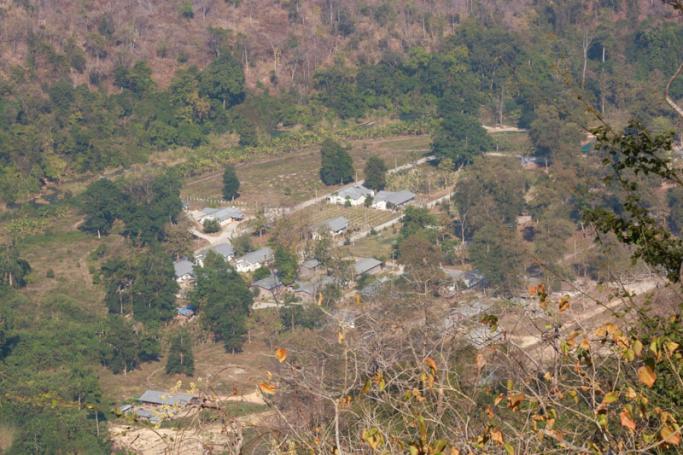The U.S. Agency for International Development’s (USAID) US$70-million Shae Thot – or The Way Forward – project is ending in March having reduced maternal and child mortality, improved food security, increased access to safe water and advanced hygiene, and strengthened community institutions in Myanmar’s central Dry Zone and Kayah State.
US AID announced on February 15 that the project had made progress.
“Shae Thot has helped thousands of communities and hundreds of thousands of people,” said USAID
Mission Director Teresa McGhie. “The project’s scope has been significant – working with people to live healthier, more productive lives, and empowering villages to achieve communal goals. This is why USAID is so proud of Shae Thot’s success.”
Shae Thot, led by Pact, has worked in more than 2,800 villages across 23 Dry Zone and Kayah State townships since 2011. It has reached 1.34 million people through its health work, improving children’s health and nutrition, providing mobile-clinic services to thousands, increasing the percentage of women giving birth with skilled midwives in attendance, and providing hygiene education to stop the spread of disease.
Through U.S. assistance, more than 644,000 people now have improved access to potable water.
More than 66,000 farmers have improved agriculture practices through Shae Thot training leading to increased yields. And 1,360 villages have US$2.1 million in locally-raised funding which they use to improve their own communities through projects overseen by their Village Development Committees.
Collaboration with grassroots groups, such as Village Development Committees, has given villagers a stronger voice in local decision-making processes, served as a model for good governance, and built bonds between villages and local authorities. These networks are expected last beyond the Shae Thot project.
“We believe Shae Thot’s partnership with communities and local residents has made a significant contribution to their wellbeing,” said Shae Thot Chief of Party Sabine Joukes. “As a result, communities, small businesses and families will now be able sustain the gains from Shae Thot long beyond its end.”
The Shae Thot consortium has been led by Pact with partners Cesvi, Marie Stopes International, Pact Global microfinance fund, UN-Habitat, and 12 local civil society partners.
Since 1997, Pact has developed integrated development programs that empower communities with increased knowledge to better care for their families, to grow their resources for individual and common goals, and take leadership in their community. Pact’s work is grounded in the belief that local communities must be the driving force in ending poverty and injustice. To accomplish this, Pact designs and implements projects to maximize local ownership and to leverage existing systems and networks. Today, Pact maintains two head offices in Yangon (one Pact Myanmar, one PGMF), which house approximately 250 staff in total. In total, Pact employs over 3,700 staff across the country working in over 100 field offices.
USAID is the lead U.S. Government agency working to end extreme global poverty and enable resilient, democratic societies to realize their potential. USAID advances U.S. national security and economic prosperity, demonstrates American generosity, and promotes recipient self-reliance and resilience.
You are viewing the old site.
Please update your bookmark to https://eng.mizzima.com.
Mizzima Weekly Magazine Issue...
14 December 2023
New UK Burma sanctions welcome...
13 December 2023
Spring Revolution Daily News f...
13 December 2023
Spring Revolution Daily News f...
12 December 2023
Spring Revolution Daily News f...
11 December 2023
Spring Revolution Daily News f...
08 December 2023
Spring Revolution Daily News f...
07 December 2023
Diaspora journalists increasin...
07 December 2023
Yangon Bus Service sees growth in passengers












